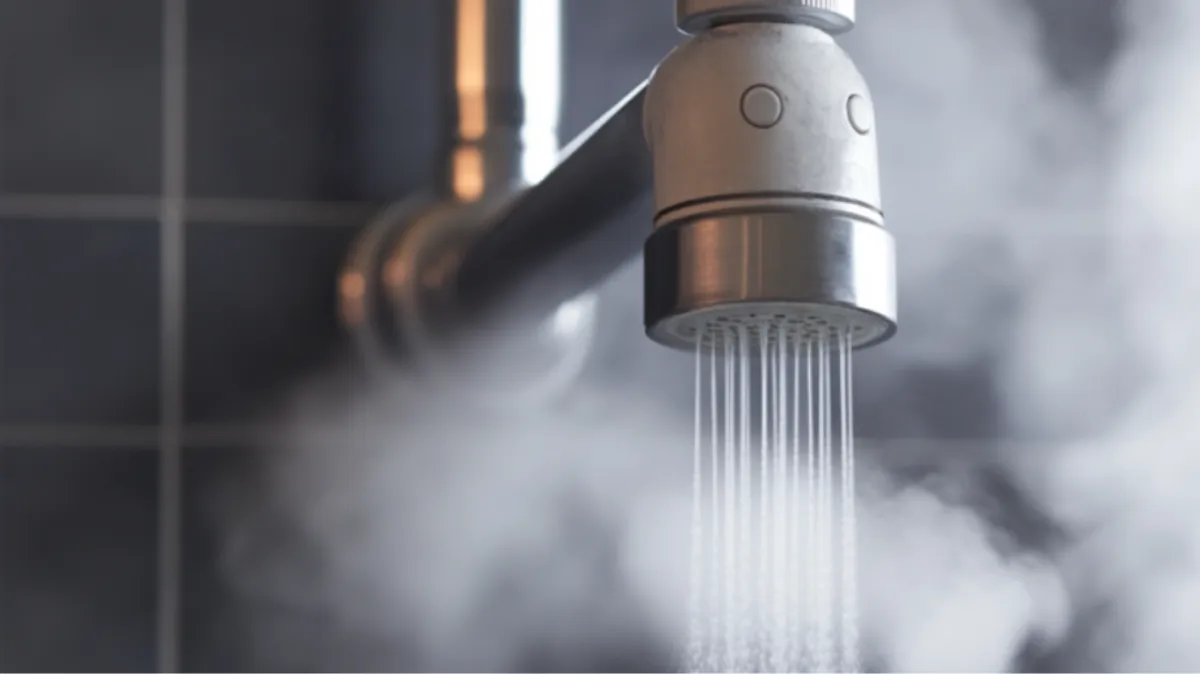
Water Heater Woes? Troubleshooting Common Summer Issues in Littleton, CO
Lukewarm or Inconsistent Water Temperature
Summer showers in Littleton, CO should be refreshing—but not for the wrong reasons. If you're experiencing lukewarm or fluctuating water temperatures, your water heater may be signaling trouble. Here are the three most common causes—and how to resolve them:
1. Sediment Buildup in the Tank
Why it happens: Over time, minerals like calcium and magnesium from hard water settle at the bottom of the tank. This sediment acts as a barrier between the burner and the water, making it harder to heat efficiently.
Symptoms:
Longer wait times for hot water
Reduced overall water temperature
Strange popping or rumbling noises
Solution:
Flush your water heater once a year to remove sediment buildup.
Consider installing a water softener to reduce mineral content in your water supply.
Schedule professional maintenance with Bravo Initiative, LLC to ensure a thorough clean-out.
2. Faulty Heating Elements (Electric Water Heaters)
Why it happens: Electric heaters use upper and lower heating elements to warm the water. If one of these fails, the heater can’t meet demand, especially during high-use summer months.
Symptoms:
Inconsistent water temperature
Only short bursts of hot water before turning cold
Solution:
Hire a licensed plumber to test each heating element with a multimeter.
Replace any burned-out elements with manufacturer-approved parts to restore full heating functionality.
3. Incorrect or Malfunctioning Thermostat
Why it happens: A thermostat that’s improperly set or malfunctioning can either overheat the water or fail to maintain the proper temperature.
Symptoms:
Water that’s either too hot or not hot enough
Water temperature that fluctuates even during a single shower
Solution:
Check the thermostat settings—120°F is ideal for energy savings and comfort.
If the thermostat is unresponsive or inconsistent, have it inspected or replaced by a plumbing professional.
Modern smart thermostats are also available and may help maintain more consistent temperatures.
Strange Noises: Popping, Rumbling, or Whistling
If your water heater is making odd sounds—like it’s trying to start a conversation—it’s time to listen. These unusual noises aren’t just a nuisance; they’re often your system’s cry for help. Here’s what the most common sounds mean and what you can do about them:
1. Boiling or Popping Sounds
What it means: This typically results from sediment buildup at the bottom of the tank. When water becomes trapped beneath the hardened mineral layer, it superheats and bursts through the sediment, creating popping or bubbling noises.
Why it matters:
Reduces heating efficiency
Increases energy bills
Shortens the lifespan of the water heater
Solution:
Schedule a professional tank flush to remove sediment and restore smooth operation.
For homes in Littleton, CO with hard water, consider adding a water softener to prevent future buildup.
Annual maintenance with Bravo Initiative, LLC can help prevent recurrence.
2. Rumbling Sounds
What it means: Rumbling noises are also linked to sediment buildup. As the water heats, steam bubbles rise through the sediment, causing the tank to vibrate and rumble.
Why it matters:
Signals excess strain on the tank
Can cause cracks or premature wear if ignored
Solution:
Perform a full flush and inspection of the tank.
If the tank shows signs of damage, consult Bravo Initiative, LLC in Littleton, CO to determine if replacement is the best option.
3. Whistling or Screeching Sounds
What it means: High-pitched whistling or screeching usually points to a restriction in water flow—often from a partially closed valve or a faulty pressure relief valve.
Where to check:
Inlet and outlet water valves—make sure they are fully open.
Temperature & Pressure Relief (T&P) valve—this safety component may be worn or malfunctioning.
Solution:
Inspect and fully open all water valves.
If the T&P valve is the culprit, have it professionally replaced to prevent over-pressurization, which can be dangerous.
Regular check-ups by Bravo Initiative, LLC ensure your pressure valves are functioning safely and quietly.
Low Water Pressure: When Your Flow Feels More Like a Drip
If your relaxing summer shower feels more like a slow trickle than a refreshing rinse, you’re likely dealing with low water pressure—and your water heater may be at the heart of the issue. Here are the most common culprits and how to resolve them:
1. Mineral Buildup in Hot Water Lines
What it means: Hard water contains minerals like calcium and magnesium. Over time, these minerals can accumulate inside the pipes leading from your water heater, restricting water flow and causing pressure to drop.
Why it matters:
Decreased pressure in sinks, showers, and appliances
Accelerated wear on plumbing systems
Can signal broader water quality issues in the home
2. Sediment or Scale in the Water Heater Tank
What it means: Sediment from hard water doesn’t just affect pipes—it can also settle inside your water heater tank and reduce flow, especially in older or poorly maintained systems.
Warning signs:
Hot water pressure is significantly lower than cold water
Rumbling noises from the tank (see our earlier section!)
3. Clogged Fixtures and Aerators
What it means: It’s not always your heater or pipes—sometimes, the fixtures themselves are to blame. Sediment and scale can collect in your faucet aerators or showerheads, especially where hot water is frequently used.
How to spot it:
One specific faucet or shower has weak pressure while others are fine
Noticeable white crust or buildup on the fixture
While some minor issues can be handled with a little DIY knowledge, water heaters are complex appliances. If you’re facing persistent problems, it's best to call Bravo Initiative, LLC. Our team of licensed professionals in Littleton, CO, offers prompt, reliable service to keep your hot water flowing all summer long.
Don’t let a faulty water heater disrupt your summer plans—schedule your inspection or service today!